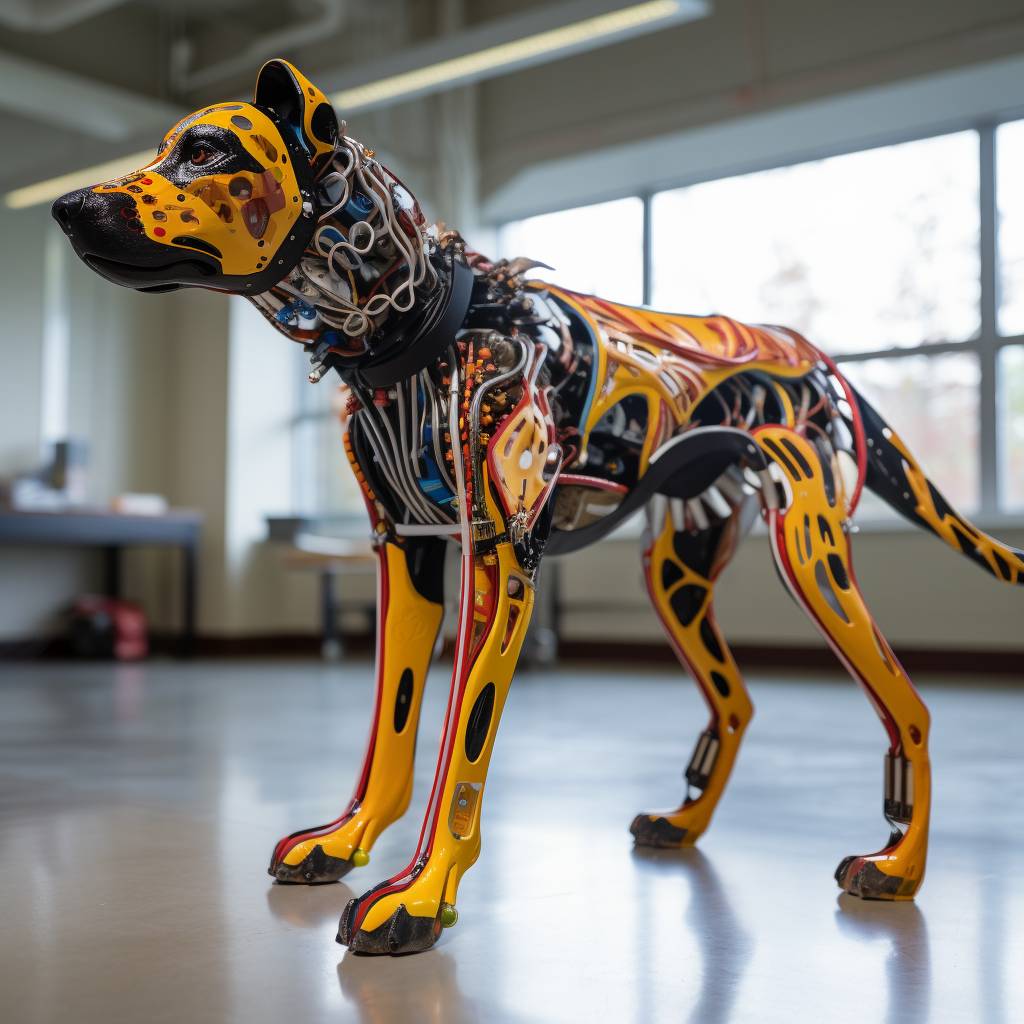The Mississippi University Department of Computer Science and Engineering is revolutionizing the field of robotics by integrating AI with bionic dogs. This cutting-edge research is being conducted by a diverse team of students, including Prabesh Khanal, a computer engineering sophomore from Nepal; Reyki Garcia, a software engineering/mathematics senior from Carthage; and Arjun Koinkar, a computer science senior from Starkville. These talented young minds are at the helm of operating the Unitree Go1 quadruped robots, AI bionic dogs that are paving the way for advanced robotics research.
These AI-infused bionic dogs are far from your ordinary pet. Instead, they serve as an essential tool for research in quadruped robotic control, agile motion planning, and rough terrain navigation. The primary goal of this research is to develop robots that can effectively navigate rough terrains and assist in search-and-rescue operations. In addition, these robots also have potential applications in off-road mobility.
The integration of AI with these bionic dogs is a testament to the power of technology and its potential to transform various industries. AI provides these robots with the ability to learn from their environment and adapt to different situations, making them a valuable asset in unpredictable and challenging terrains. This capability is particularly useful in search-and-rescue operations where the terrain can be unpredictable and hazardous.
The use of AI in these bionic dogs also demonstrates the increasing relevance of programming languages and coding in today’s digital age. These skills are essential in developing and fine-tuning the AI algorithms that drive these robots. As such, students like Khanal, Garcia, and Koinkar are not only gaining hands-on experience in robotics but also honing their skills in programming languages and coding.
Furthermore, the adoption of these AI bionic dogs by the Mississippi University highlights the growing trend of AI integration in various fields, including electronics and computers. Today, AI is no longer confined to the realm of science fiction. It is increasingly becoming a part of our everyday lives, influencing everything from our smartphones to our cars. As such, research like this is not only advancing our understanding of AI but also preparing us for a future where AI is ubiquitous.
The research conducted by Mississippi University also underscores the importance of collaboration and diversity in technological innovation. The team behind this project comes from diverse backgrounds and fields of study. This diversity allows for a broader perspective and a more comprehensive approach to problem-solving, which is crucial in a field as complex and multifaceted as AI.
In conclusion, the research being conducted by Mississippi University’s Department of Computer Science and Engineering is a testament to the transformative power of AI. By integrating AI with bionic dogs, they are not only advancing our understanding of robotics but also demonstrating the potential of AI to revolutionize various industries. This research is a shining example of how technology can be harnessed for the greater good and how the youth can lead the way in technological innovation.
For those interested in learning more about how Mississippi University’s CSE department is leveraging AI for hands-on research, more information can be found on their official website. This ongoing research project is just one example of how universities are at the forefront of technological innovation, shaping the future of industries like electronics, computers, and more.
